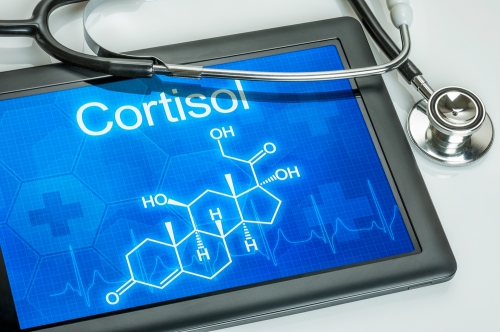 Your stomach feels queasy. Your muscles begin twitching. Your head starts to feel a bit tight. If these symptoms occur during a difficult or emotional period, you’re likely to recognize them as signs that you’re under stress. Most of us have felt them at one time or another; they’re pretty common signals that your body is feeling and reacting to the pressure of a stressful situation. There are other physical reactions to pressure which may not seem quite as obvious – such as the effect stress can have on your skin.
Your stomach feels queasy. Your muscles begin twitching. Your head starts to feel a bit tight. If these symptoms occur during a difficult or emotional period, you’re likely to recognize them as signs that you’re under stress. Most of us have felt them at one time or another; they’re pretty common signals that your body is feeling and reacting to the pressure of a stressful situation. There are other physical reactions to pressure which may not seem quite as obvious – such as the effect stress can have on your skin.
Cortisol
Did you ever look in the mirror before an important meeting and curse your luck, thinking “Why does my skin have to break out at a time like this?” Or have you ever been getting ready for a big date and wondered “How did that cold sore know it should show up now?” The answers have nothing to do with bad luck or omniscient fever blisters. They have to do with a steroidal hormone known as cortisol, which is produced naturally by your body’s adrenal gland. Cortisol performs several important functions, playing a major role in controlling inflammation. What we’re concerned with here, though, is when the body is under stress it produces more cortisol than usual. That’s generally a good thing, because the hormone helps to give you the surge of energy you may need to deal with whatever’s causing the stress.
Why More Is a Big Problem
Unfortunately, an overabundance of cortisol causes a number of problems for your skin. First of all, cortisol signals the sebaceous glands in your skin to produce more oil. Now this is probably beginning to make sense: we all know that too much oil is likely to cause clogged skin pores, leading to acne or other breakouts. That’s not the only issue, though. There’s something called a “lipid barrier” on your skin, which is a flattened layer of cells surrounded by fats (also known as lipids). This crucial barrier holds in your body’s water, while preventing harmful bacteria and allergens from getting in. And it turns out that cortisol compromises this lipid barrier. So as more cortisol is produced, more water escapes and your skin becomes dehydrated. When skin isn’t moist, it’s harder for the body’s enzymes to maintain and repair it. This problem is magnified by the fact that cortisol also limits the skin’s ability to produce hyaluronic acid, which acts as a natural moisturizer. The bottom line: your skin is much more likely to suffer damage when it’s dried out. The picture gets worse. Studies have shown that increased levels of cortisol also mess with the part of your immune system that protects you from allergens. So when you’re under stress and your body is producing extra cortisol, you’re more susceptible to problems that can be caused by allergic reactions, like eczema, dermatitis and hives. Want even more bad news? The release of cortisol causes an increase in blood sugar, which leads to a process that damages the skin’s collagen. That usually promotes the development of fine lines and wrinkles.
Other Villains
Cortisol isn’t the only villain in this story. You probably know that when you’re stressed, your body also releases adrenaline (also known as epinephrine). As it turns out, epinephrine decreases the flow of blood to the skin, meaning it doesn’t get enough oxygen and other important nutrients critical for healthy skin that glows instead of looking dull and damaged. Stress goes beyond the science when it comes to skincare, though. Often times we forget our normal routines during difficult times, including our normal cleansing and moisturizing. Many people develop or increase nervous habits such as scratching, rubbing or biting their skin as a means of coping with stress. Combine that with the release of hormones, and you have a recipe for a skin disaster. Needless to say, this is particularly problematic when skin is already compromised by the other issues we’ve mentioned.
What Can You Do About It?
So what can you do to prevent these problems from occurring? The easiest answer is to avoid stress, but often we can’t do that. However, you can reduce your stress by incorporating relaxation techniques in your daily life. Here are five simple tips to reduce stress and the problems with your skin before they start:
- If you’re in a stressful situation, practice your breathing. When we stress, we often forget proper breathing techniques, and getting more oxygen into our bodies means more oxygen that can reach our skin. Take a deep breath and exhale for at least five to ten seconds, and then repeat.
- Exercising can do a lot to relieve stress. It increases your circulation, which not only helps your body but improves the skin on your face by allowing it to remove impurities and toxins. It doesn’t have to be major; a walk around the block will also help you relieve stress.
- Take care of your skin. It’s easy to neglect yourself during a difficult time period, but it will only make things worse. Cleansing, moisturizing, and even exfoliating during this time period makes a huge difference in how your skin will look during this time and when it’s over.
- Find a distraction. It’s easy to get wound up during a stressful time that you forget about the world around you. Take 10 minutes to do something you love, such as play a game or listen to soft music while taking in a mud mask. The mini-vacation can do wonders for your stress levels.
- If you know your skin’s reaction to stress is severe, talk to your dermatologist about your skins reaction before the problem occurs again. That way you’ll already have a treatment plan in place so at the first signs of stress on your skin you’ll be ready.

Change Your State of Mind to Change Your Skin
So the next time someone tells you “Gee, you look tired!” when you’re going through a stressful period, you probably really do. Finding ways to reduce stress will certainly help improve your outlook and your appearance, but don’t forget to give extra care to your skin. When you’re feeling pressured, it needs help almost as much as you do. Fortunately there are many ways to give your skin a little extra TLC like using great skin care products.
Not that you know how stress affects your skin you can be better prepared. Let us know the ways you like to de-stress in the comments below.

Pingback: Anti-Aging Mistakes Made by Men | Vine Vera Skin Care
Pingback: Benefits of Chocolate | Vine Vera Skin Care